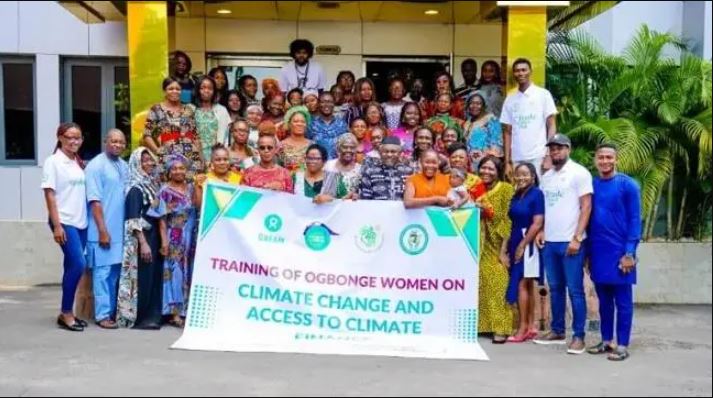
How GIFSEP, OXFAM, others partnered to empower women for Agriculture, Climate Change

The Global Initiative for Food Security and Ecosystem Preservation (GIFSEP) has announced a collaboration with several NGOs and OXFAM to train women in agriculture and climate change adaptation. This initiative was highlighted during a workshop on Female Food Heroes (Ogbonge), Women on Climate Change, and Access to Climate Finance, held on June 25, 2024, in Abuja.
Dr. Michael David, Executive Director of GIFSEP, emphasized the importance of this training, noting that female farmers are responsible for producing a significant portion of the food consumed in the country. “Climate change is impacting how they grow their food; looking at the food inflation the country is facing, we can attribute climate change to one of the causes of food inflation in the country,” David explained.
He stressed the need to empower these farmers to become change agents in their communities, enabling them to train others in building climate change resilience and implementing simple adaptation techniques. David also called for government support for smallholder farmers to ensure robust harvests. “If we must attain the Millennium Development Goals by 2030, then we must empower the small-scale farmers; we need to train more women, not just the ‘Ogbonge’ women, to help our country attain food sovereignty,” he said.
Peggy Maimaji, Project Coordinator for Together Against Poverty at OXFAM, highlighted the project’s focus on addressing the specific challenges faced by female farmers, particularly the impacts of climate change on farming. Maimaji assured that the project would continue to tackle issues related to access to land and finance, noting that OXFAM has collaborated to award no fewer than 12 women farmers annually since 2012 through the Female Food Hero project.
Monica Maigari, a participant from Kaduna State who was awarded by OXFAM in 2014 for her outstanding performance, praised the NGOs for their efforts. “I have learned how to mitigate climate change as well as to adapt to it,” Maigari said, highlighting the practical benefits of the training.
This initiative represents a significant step towards empowering women in agriculture, promoting climate resilience, and striving for food security and sustainability in Nigeria.









